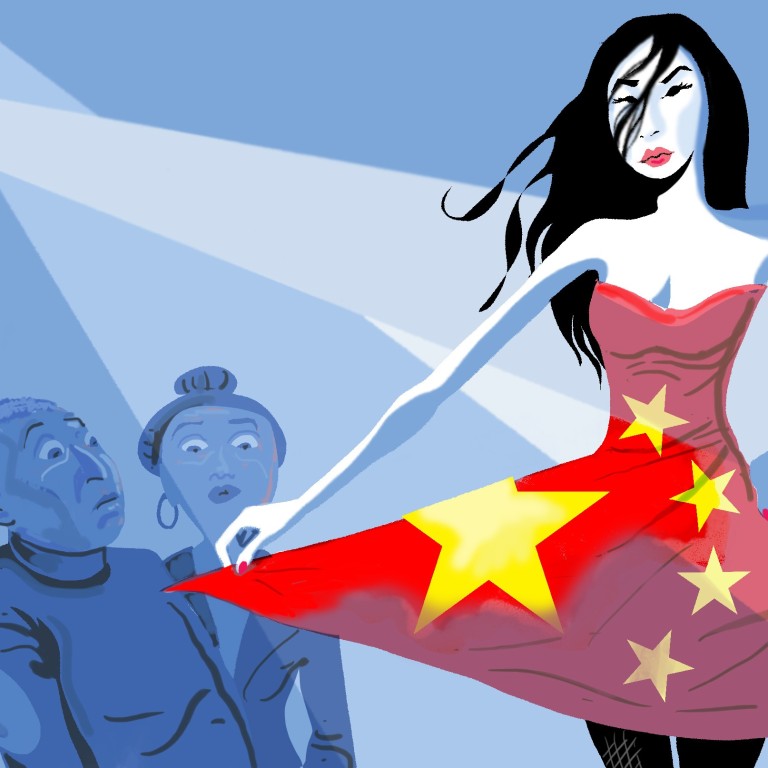
China damages its brand when it co-opts celebrities into its One-China, pro-police propaganda drive
- Entertainers such as Liu Yifei and Jackie Chan have sparked backlashes outside China after taking positions on the Hong Kong protests. While such displays play well to Chinese nationalists, they might actually hurt China’s image overseas
The timing of all these revelations was intriguing. Regardless of whether the nationalist fever was fanned to reshape the narrative around Hong Kong as a secessionist conspiracy and therefore prepare the domestic audience for a possible military crackdown, the political message was unmistakable: there is zero tolerance for political incorrectness.
Any person of influence who publicly takes a position on China’s territorial integrity and sovereignty should be respected, if their views are based on real political conviction. But some may question the wisdom of abruptly terminating contracts in the grip of nationalism.
After all, most web designers for brands are unlikely to have deliberately courted controversy by placing a territory in the wrong category. Also, it might not help that the International Organisation for Standardisation includes different two-letter Web domain names for different subdivisions of countries, for example.
Yet, when such apparently unintended mistakes were blown up into political incidents and characterised as affronts to China’s dignity, brand ambassadors couldn’t cut ties with the companies fast enough. Of course, for entertainers whose primary market is China, the choice seems simple: it is necessary to curry favour with the regime to safeguard their commercial success.
Whatever he says, Trump doesn’t care about Hong Kong either way
But for performers who aspire to international fame, there could be a huge price to pay for indiscriminate patriotism.
Many in Hong Kong responded in anger, and one retweeted the video of the offending interview with the message: “For those who still don’t understand why #Hong Kong people hate Jackie Chan.”
Liu and Chan are not the only stars to have expressed their opinions and stirred up a hornet’s nest. On June 30, Canto-pop singers Alan Tam Wing-lun and Kenny Bee – both members of the 1970s band the Wynners – went on stage at a pro-police rally and called protesters “ridiculous”. In response, long-time fans trashed their old records.
Protesters in need of carrots after sticks
Even actor Tony Leung Ka-fai, who attended the rally but did not speak, was not spared. Netizens cast doubt on the motivation for his appearance at the pro-police gathering. Some observed that Midnight Diner, Leung’s directorial debut, finally got a release date in China after he attended the rally.
Still, although #BoycottMulan has generated tens of thousands of likes and retweets, its impact remains uncertain as the world premiere is still many months away. Besides, Twitter is blocked in China. A boycott of the movie in Hong Kong and some Western countries could also rally nationalist support for Liu in China.

To meet its goals, China will have to become more likeable
While Chinese patriotism is useful for rallying citizens and legitimising any tough action with regard to the Hong Kong situation, it risks further polarising public discourse and undermining China’s narrative of its peaceful rise. Overplaying this hand could leave Chinese leaders less wiggle room should they later need to retreat under international pressure.
By the same token, given China’s desire to project its soft power internationally, it is not enough to broadcast its side of the story to its domestic audience – and, by doing so, incite bigotry and hatred. Entertainers could be powerful brand ambassadors for China itself. They shouldn’t be involved in spreading divisive propaganda.
Chiu-Ti Jansen, with advanced degrees from Yale and Columbia, is the founder of multimedia platform China Happenings and a former corporate partner of international law firm Sidley Austin

